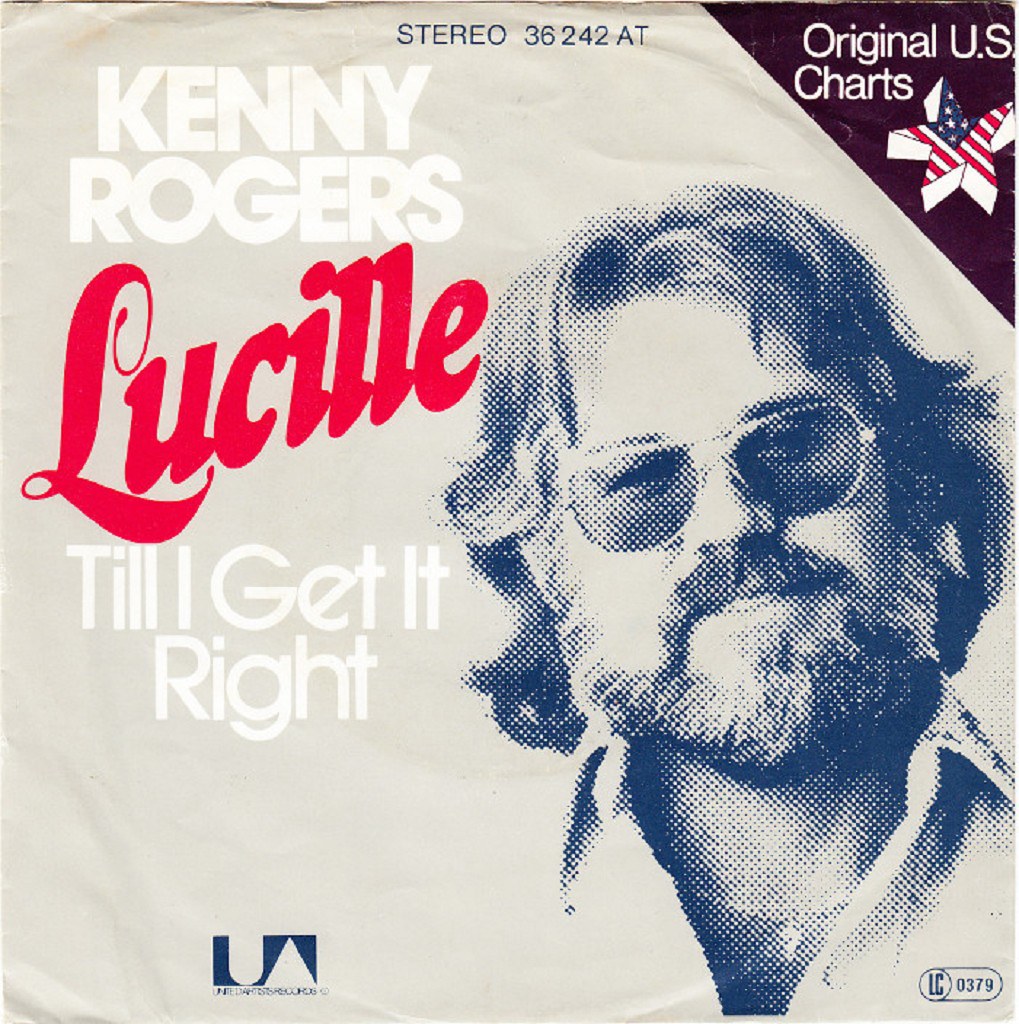A Heartbreaking Ballad of Abandonment and Resilience

In the realm of storytelling through song, few pieces capture the intricate dance of heartbreak and resolve as poignantly as Kenny Rogers’ Lucille. Released in 1977 as part of his album Kenny Rogers, this classic achieved remarkable commercial success, soaring to the number one spot on the Billboard Hot Country Singles chart and crossing over to achieve top five status on the Billboard Hot 100. Its widespread appeal not only cemented Rogers’ status as a defining voice in country music but also as a masterful interpreter of narrative-driven songwriting.
At the core of Lucille lies a story as old as time yet delivered with a freshness that resonated deeply with audiences. The song’s lyrics unfold like a vivid short story, painting a picture of a weary man confronting the sudden unraveling of his marriage. As Rogers’ voice, rich and imbued with empathy, narrates the fateful encounter with Lucille in a bar, listeners are immediately drawn into the tableau of emotional upheaval. This is no simple tale of betrayal; it is an exploration of human frailty and the desperation that drives people to abandon what they once cherished.
The genesis of Lucille can be traced to the songwriting prowess of Roger Bowling and Hal Bynum, whose collaboration gave birth to this poignant narrative. The duo crafted lyrics that were at once specific and universal, allowing listeners to project their own experiences onto the unfolding drama. The titular Lucille becomes an archetype for anyone who has ever felt trapped or unfulfilled, while her husband’s lament gives voice to those left grappling with sudden loss.
Musically, Lucille is anchored by its gentle yet insistent rhythm, a fitting backdrop for a tale that unfolds like a slow reveal. The instrumentation is deceptively simple, with guitars and piano providing a steady undercurrent that accentuates Rogers’ storytelling prowess. This subtle musical landscape allows his voice to shine, each note weighted with the gravity of lived experience.
In dissecting the lyrical content, one uncovers layers of meaning that elevate Lucille beyond mere narrative. The song opens in medias res, placing us immediately in a bar where the protagonist confronts Lucille’s betrayal. It’s an evocative setting—a public space tinged with personal pain. Rogers’ delivery is masterful; his voice carries both resignation and a tinge of empathy for Lucille’s plight, even as he mourns his own.
The cultural impact of Lucille extends beyond its chart performance. At its heart is a universal theme: the unexpected chaos wrought by personal decisions. It resonates because it acknowledges life’s unpredictability—how one moment can redefine everything we thought we knew about love and commitment. For those navigating their own turbulent waters, Rogers’ narrative offers solace in shared experience.
Decades after its release, Lucille remains a touchstone for storytelling within music—a testament to Kenny Rogers’ ability to weave together melody and narrative into an indelible piece of art. As we revisit this classic, we’re reminded not just of its historical significance but also of the enduring power music holds in capturing the essence of our collective human journey.